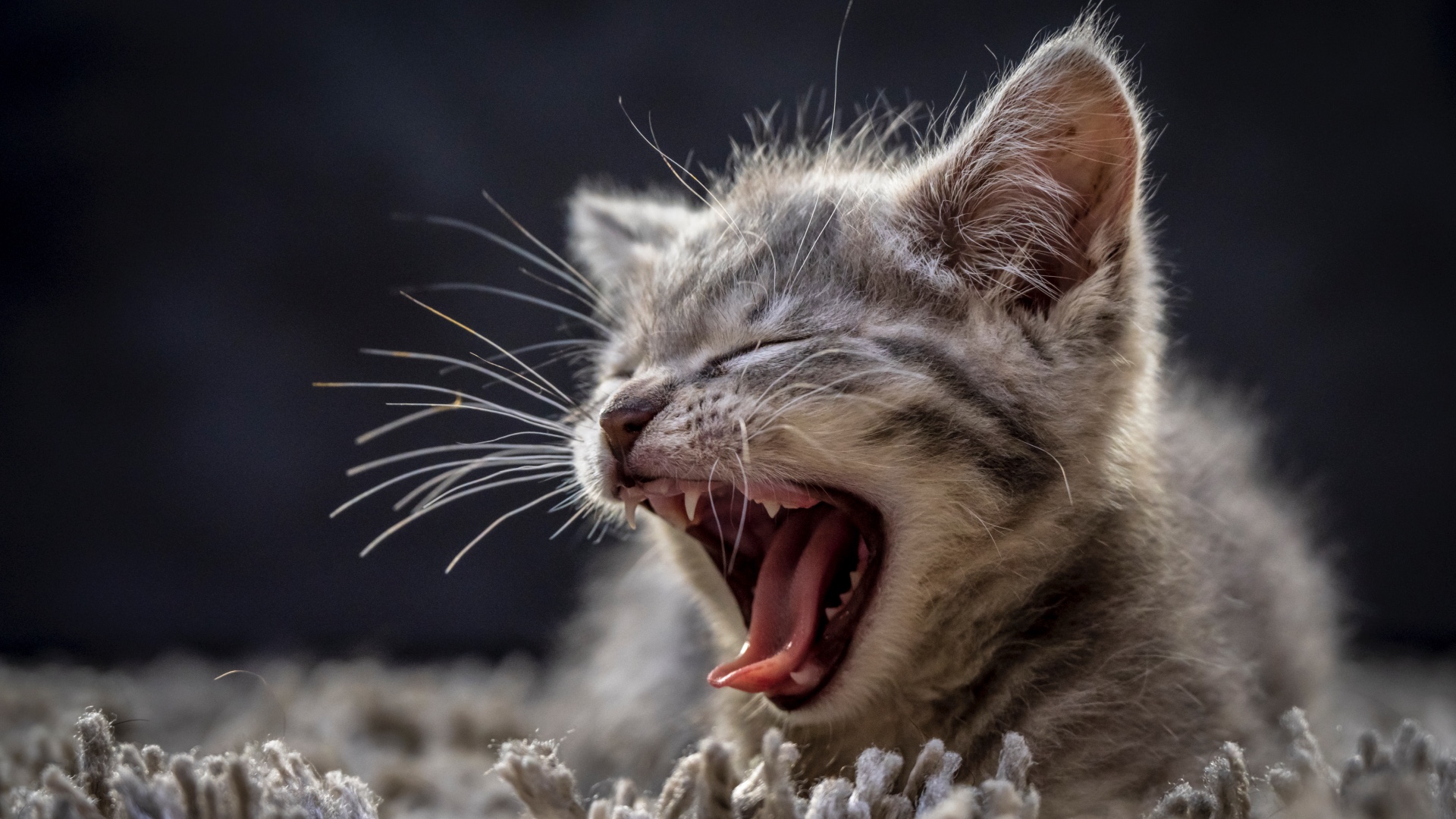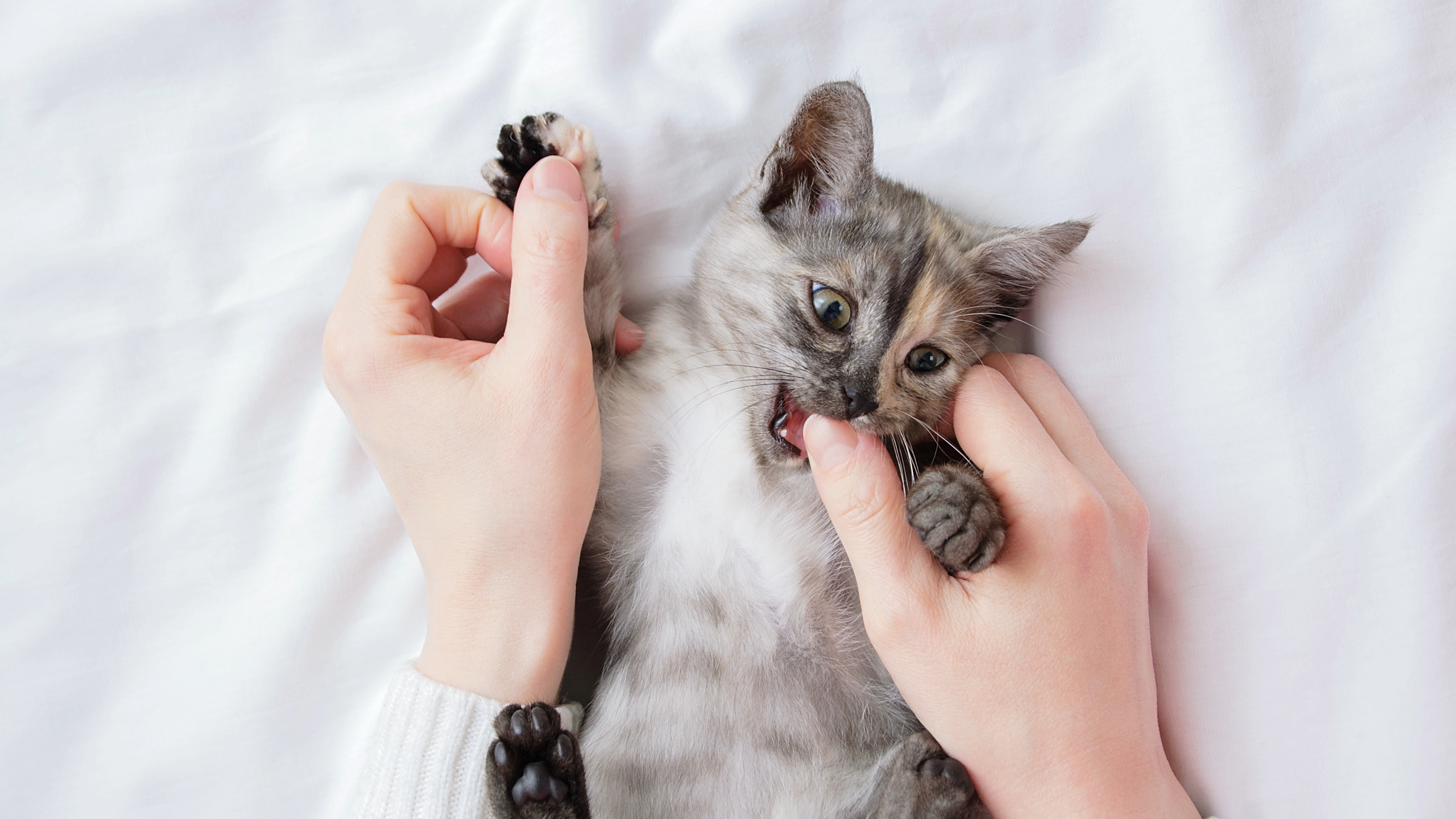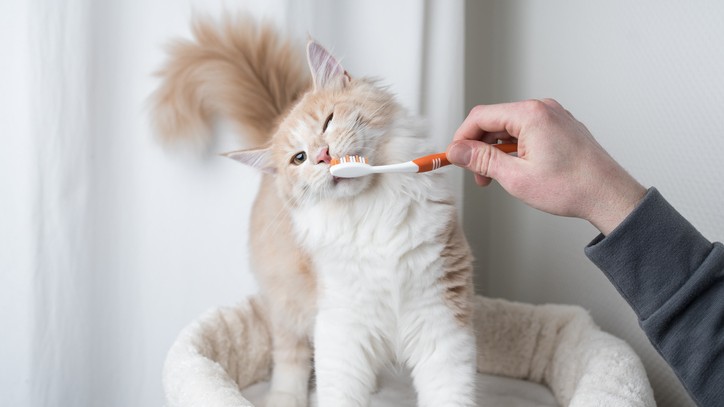
Kitten teething can be an uncomfortable time for your young fur friend, and it’s not much fun for you either. Not only is it hard as a pet parent to watch your beloved bundle of fluff experiencing pain, they may choose to chew on less than ideal items around the house as a way of soothing their sore gums — which isn’t great if you’re fond of your clothes and furniture!
Thankfully, the best kitten teething toys can help make everyone’s lives easier. Helping to keep your kitty occupied when they’re suffering from discomfort, they’re great for relieving pain and can also teach appropriate chewing behavior. But aside from toys, is there anything else you can do during this time?
Well, as it turns out, there certainly is. Part of bringing home a new kitten is preparing for the teething phase, so we’ve called on expert vet Dr. Rebecca MacMillan who’s written this guide to fill you in on everything you need to know. Below, you’ll learn exactly how long kitten teething lasts, what you can do to help and how you can keep your cat’s teeth in tip-top condition throughout their life.
Is my kitten teething?
There are several signs that your kitten might be teething and starting to get his permanent teeth to come through. These include
- Excessive chewing – Many kittens will start to chew on all sorts of things in an attempt to relieve some of their discomfort. This could be toys, furniture, their own paws, or even your fingers!
- Your kitten's gums may seem a bit inflamed – Sometimes the gums bleed a little too around this time
- A reduced appetite – Some kittens go off their food around the time of teething
- Reduced grooming frequency – Some kittens will groom themselves less than normal because they are feeling uncomfortable.
If you are worried that your kitten’s appetite has reduced significantly or that they are showing any other symptoms of ill health, you should always get them checked over by your veterinarian.
When does kitten teething start?

Kittens get their first set of baby teeth at around 3 weeks of age in preparation for weaning. The next time teething occurs is when the adult teeth start to come through and the baby teeth are lost. This usually occurs gradually somewhere between three and six months of age.
How long does kitten teething last?
This varies from kitten to kitten, but most cats will have all their adult teeth in place by the time they are six or seven months of age. Kittens have 26 milk (deciduous) teeth which are gradually lost and replaced by 30 permanent adult teeth. You may find the teeth that have been shed in your home, or sometimes your kitten just swallows them.
How to help a kitten that’s teething

There are some steps you can take at home to help make your kitten feel better whilst he’s teething.
1. Give your kitten safe things to chew on
Make sure your kitten has plenty of safe cat toys to chew on, including different textures (such as rubber and fabric) that they can really bite down on.. Never let your kitten chew on your fingers. Whilst it can seem cute when they are small you don’t want them getting into the habit as an adult cat – ouch!
2. Don’t tell him off
Don’t tell your kitten off for chewing the wrong thing. Instead, use positive reinforcement to get him to chew his toys. Praise and reward him when he’s playing with them. Check out our kitten training tips and use the best kitten treats to help with this process.
3. Keep your kitten busy
Plenty of interaction and play will take his mind off his teething. Plus, the exercise and mental stimulation will help to wear him out. A tired, happy kitten is less likely to be destructive.
4. Look after your kitten's teeth
Teeth brushing is recommended for cats as well as dogs, and this is something that can be introduced at a young age. He might be a bit tender for teeth brushing whilst he’s actively teething, but you can start to introduce things gradually. Use pet-specific toothpaste and make sure you praise your cat. Our kitten care tips give some other useful preventative healthcare advice for your pet.
5. Don’t give your kitten human medication
If you think your kitten is excessively uncomfortable then you should take them to your veterinarian. Never give your kitten any human pain relief medications. Many human drugs can be toxic to cats.
What food should I give my teething kitten?
The general advice when feeding kittens is to have them on a good quality complete diet that is appropriate for their age. Kittens require plenty of protein and the right amount of calories for all the growth and development that they need to do. It is a personal choice whether to feed dry food, wet food, or a combination of the two. Read our article on the best kitten food for more tips on how to choose a diet for your kitten.
You might find your kitten has a preference of one type over the other whilst he’s teething. If he’s a little off his hard biscuits, you could always try soaking them in warm water to soften them a bit or try a bit of the best wet cat food. Many kittens will continue eating fine throughout, however, so just follow your kitten’s lead.
How do I keep my cat's teeth in good condition?
When it comes to looking after your cat's adult teeth, helping them to feel comfortable with brushing from a young age is key. Spend time with your young fur friend getting them used to you touching in and around their mouth as training your cat early will make it easier to keep their teeth clean as they age.
Starting to brush your cat's teeth when they're young will allow you to remove plaque and tartar before it has time to build up. This will reduce the chance of them having to be placed under an anaesthetic in order to have a vet clean them. Plus, regular brushing is great for preventing stinky breath, too!
To help soothe the pain of sore gums and ease inflammation, why not turn your hand to one of these DIY kitten teething toys? With something to suit every skill level, they’ll provide your feline friend with hours of amusement.







